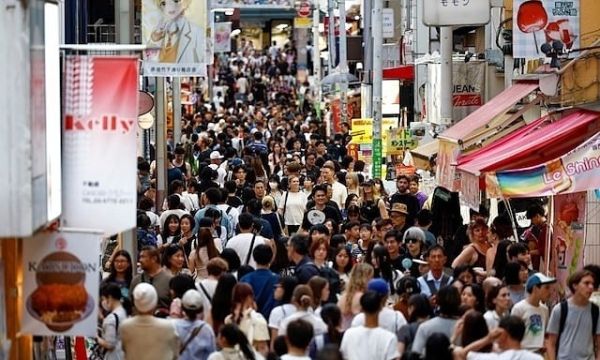
Japan, named the world’s most favorite travel destination by readers of Condé Nast Traveler in the 2024 edition of the magazine’s annual Readers’ Choice Awards, logged more than 36.8 million tourist arrivals in 2024, topping 2019’s record of nearly 32 million, according to estimates from the Japan National Tourism Organization.
It marks a return to a boom that began over a decade ago before being interrupted by the Covid-19 pandemic, with numbers up more than four-fold from 2012.
That is partly thanks to government policies to promote attractions from Mount Fuji’s majestic slopes to shrines and sushi bars in more far-flung parts of the archipelago.
Another factor is the cheap yen, which has plunged against other currencies over the past three years, making everything from a bowl of ramen to a handmade Japanese kitchen knife more affordable.
Japan has long been a “bucket list” destination for many people, said Naomi Mano, president of hospitality and events company Luxurique.
But it’s “prime time because at the moment it’s like Japan is on a 30 percent off sale”, Mano told AFP.
The government has set an ambitious target of almost doubling tourist numbers to 60 million annually by 2030.
Authorities say they want to spread sightseers more evenly around the country, and to avoid a bottleneck of visitors eager to snap spring cherry blossoms or vivid autumn colors.
But as in other global tourist magnets like Venice in Italy, there has been growing pushback from residents in destinations such as the ancient capital of Kyoto.
The tradition-steeped city, just a couple of hours from Tokyo on the bullet train, is famed for its kimono-clad geisha performers and increasingly crowded Buddhist temples.
Locals have complained of disrespectful tourists harassing the geisha in a frenzy for photos, as well as causing traffic congestion and littering.
In a bid to improve the situation – and cash in – Kyoto on Tuesday announced plans to hike lodging taxes “to realize ‘sustainable tourism’ with a high level of satisfaction for citizens, tourists and businesses”.
“If there’s a burden on the infrastructure, I do think taxing tourists is a good idea” but Kyoto must find the “right balance”, Australian tourist Larry Cooke, 21, told AFP.